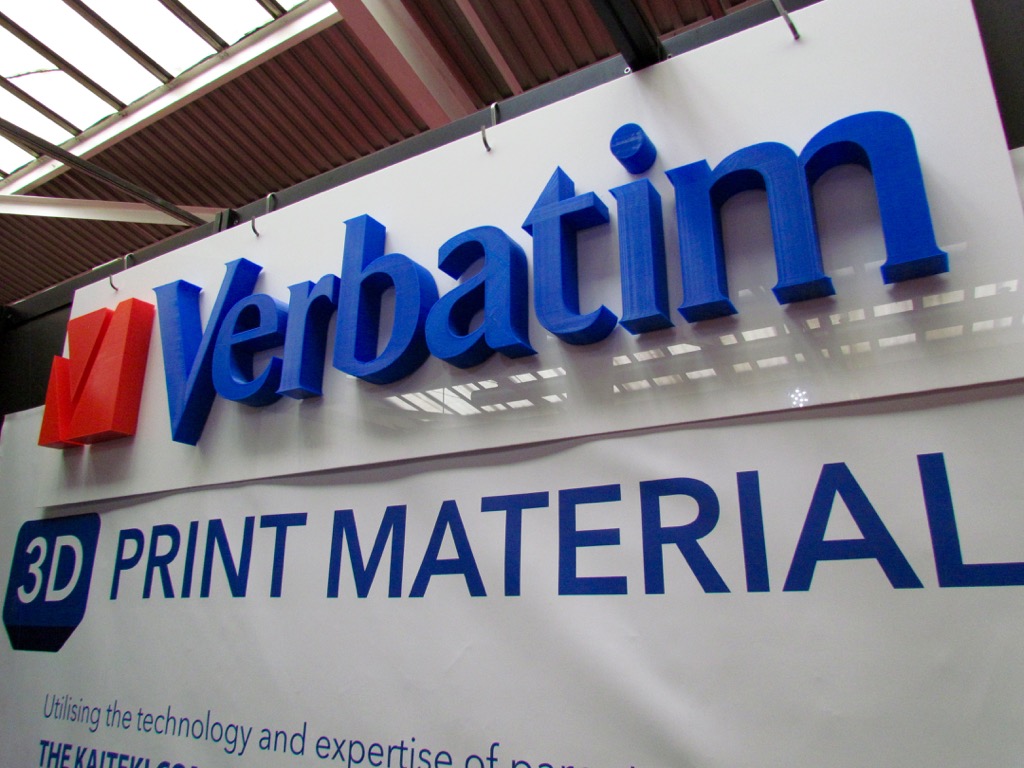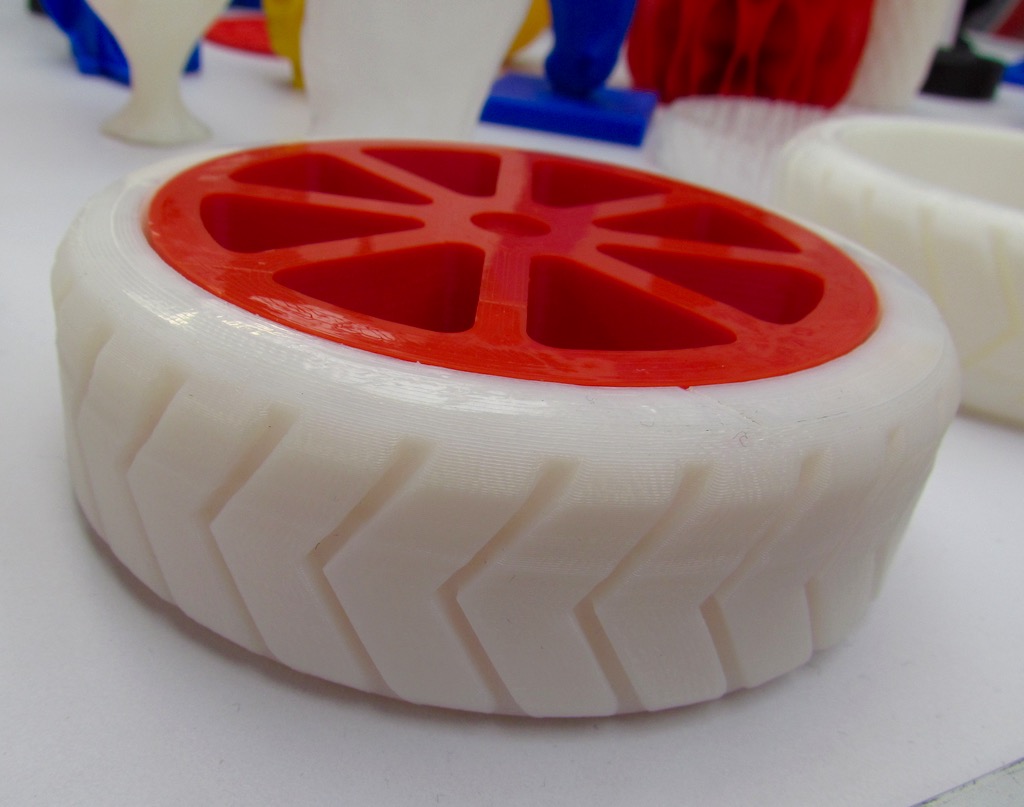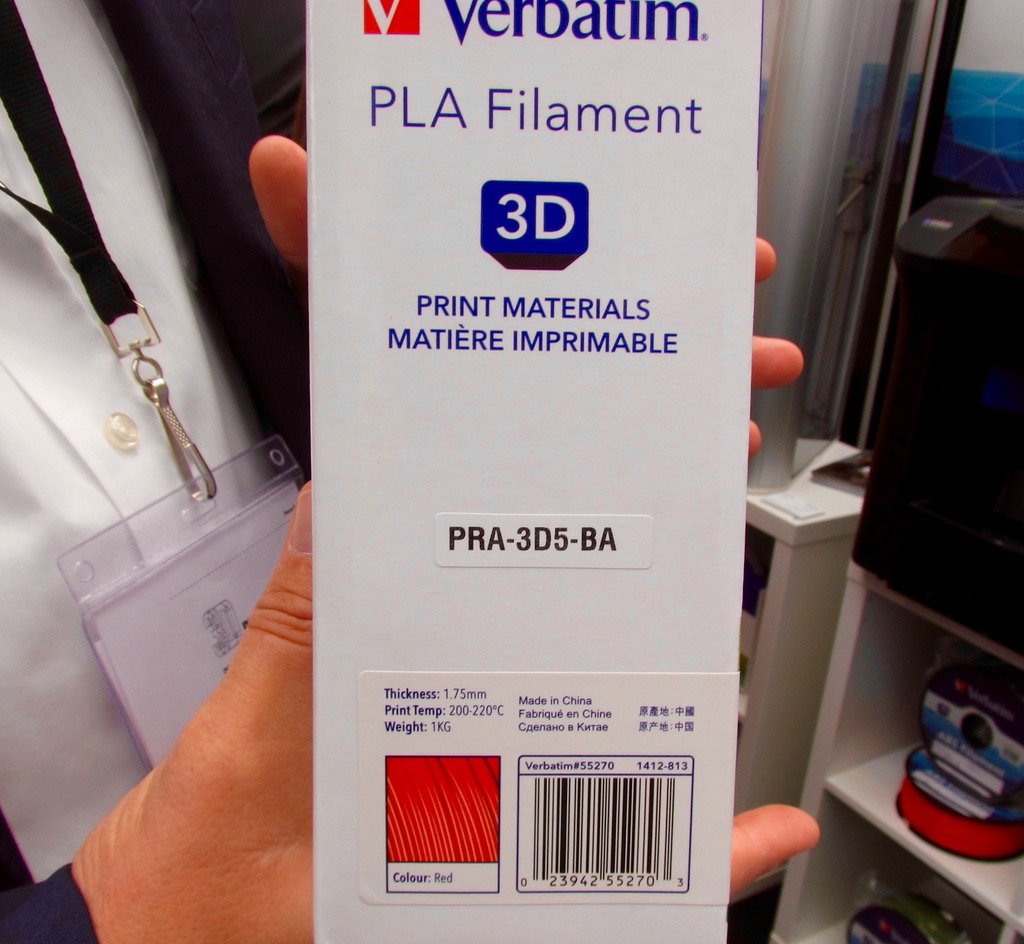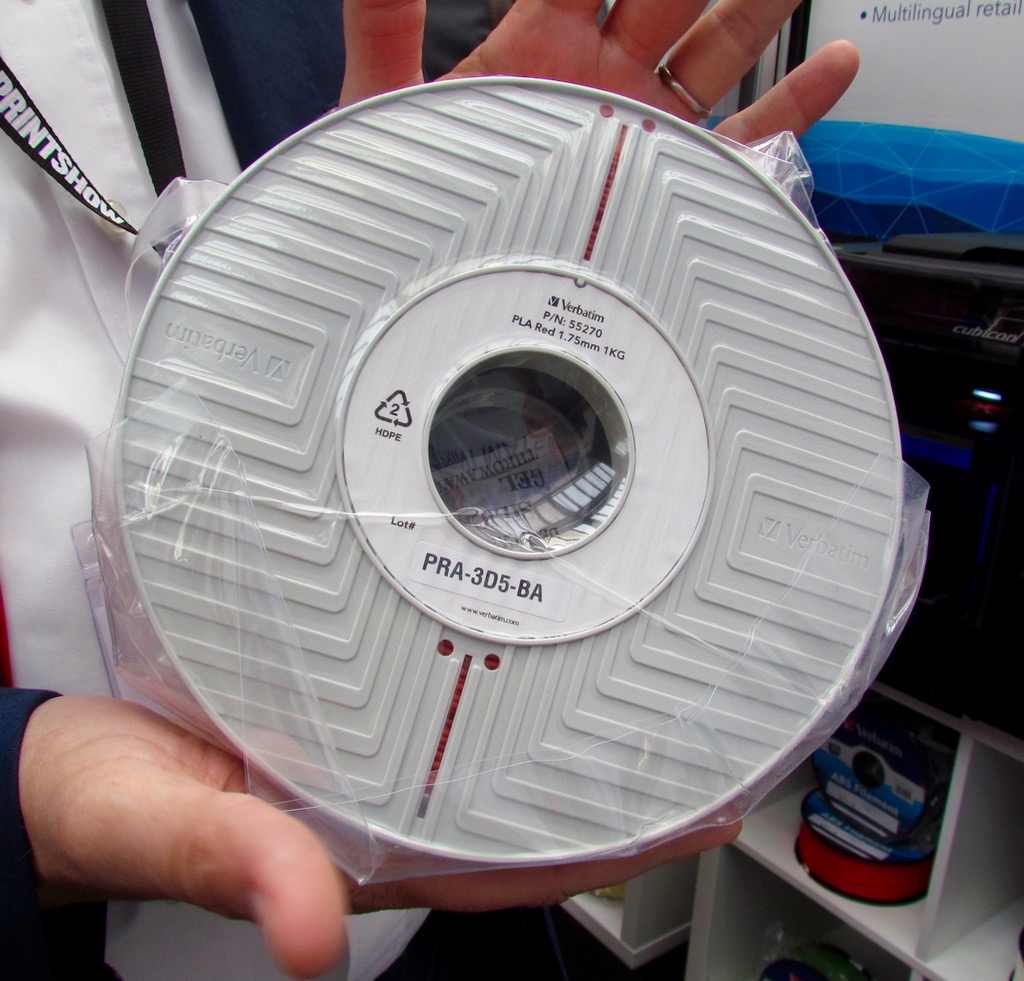
Media giant Verbatim now sells a series of very impressive 3D printing materials.
We had a long discussion with Verbatim representatives at the recent London 3D Printshow where they were exhibiting their 3D printer products to the public.
Currently they offer very high quality ABS and PLA filaments in a reasonable selection of colors. We haven’t yet tested these filaments (but are doing so in the lab for a future report), but our understanding from those who have done so have found Verbatim’s filaments to be of the highest quality.
They also offer a unique flexible material called, “Primalloy” that is flexible: prints retain their shape but can be easily bent or squished before returning to their original shape. Verbatim says Primalloy is much easier to print than the main competing flexible filament, NinjaFlex, which must be printed at very slow speeds – because it flexes too much if printed at normal speeds and causes frequent extruder jams. Apparently Primalloy does not have this issue and can be printed in almost any 3D printer at reasonable speeds.
Here we see a wheel printed in solid ABS with a Primalloy tire attached, demonstrating the possibilities of this unusual material.
Verbatim representatives indicated a new soft material will be released in Q3 this year, which could add oil and chemical resistance properties.
Filament quality is maintained in their Japanese factory by master-batching both raw plastic and pigments from their owner, Mitsubishi, a very large conglomerate. They also perform extensive testing on their filament. We’re told they currently have certified some 23 different 3D printers for their products with even more undergoing testing.
Packaging of the filament is quite interesting. While they vacuum seal the filament as do some other vendors, they use a highly-recyclable HDPE plastic spool. There’s no need to accumulate a pile of empty plastic spools with this product – and you don’t need to worry about flimsy cardboard spools, either.
The packages include all useful information on the exterior, as you might expect, but they also include the batch number in case you really, really need to ensure consistent coloration. (In this view, the batch number is pasted on with a sticker in the middle of the view.) However, they company says their color matching process should alleviate any such fears.
Pricing for the filaments is conservative. It seems that the retail price is around £27 (USD$40) per kilo, which is a bit more than commodity pricing, but less than some manufacturer’s filaments.
Via Verbatim




